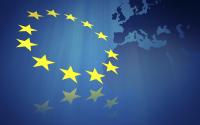Published on Wednesday, December 29, 2004 by the San Francisco Chronicle |
The great election of 2004 proved what many of us have known for a long time: California is an island, tenuously connected to a country ironically named the United States. In the land of California, John Kerry won by more than 1 million votes; Marin County banned the farming of genetically modified organisms; and San Francisco is fighting to protect love, not theology, as the core value of marriage. We've even hired an actor to invent a new populist lexicon and pretend to be a Republican governor.
Many Californian environmentalists are still in denial about our island life. We can thank the Bush administration for making it clear that no amount of lawsuits or lobbying will halt its efforts to weaken our environmental laws. President Bush's re-election is only the most recent signal that the environmental movement cannot perform its basic function of protecting the environment. In a more ominous development, every major global ecological indicator is heading in the wrong direction.
Californians who care about the environment need to begin a new project. The first thing to realize is that our relatives outside of the state are right: Californians are weird. The strongly held values for most Americans differ from the majority values in California. Nationally, concern for the environment and ecological health is broadly held, but not felt to be urgent, according to pollster Ted Nordhaus. Compare this to the social value of patriarchy, which has seen a considerable rise over the last 20 years. In 1992, according to the social-values research firm Environics, 42 percent of Americans agreed with the statement that "The father of the family should be the master of the house." Today, that number is 52 percent. Patriarchal societies are less likely to use government to protect new classes of rights, from rights for women to rights for nature.
Facing this challenge, our island's project should be changing America's values to look more like our own. Sadly, the environmental movement is not prepared to take on this battle. Most environmental organizations treat the environment as a narrow category that includes one set of things, such as California condors, smog and redwoods, but leaves out another set, such as HIV/AIDS, job creation and debt relief. This specialization is not well suited to answer the need of Americans for fulfillment. Without addressing this need for a more ambitious movement, environmentalists, and all social movements on the left, are doomed to minority status.
Environmentalism synthesizes the conservationist-preservationist instinct inspired by John Muir with the toxic nightmare expressed by Rachel Carson. Today, the environment experienced by most Californians is undeniably better than 30 years ago -- cleaner air, cleaner water and more places with permanent protection. While there are still more places to save and sources of pollution to abandon, the greatest threat to our island's survival today is the ever-rising tide of global warming. Global warming cannot be stopped by state action in California, and the brand of technical environmentalism characterized by regulatory policy expertise and legal obstructionism that dominates the big national environmental groups is outmoded in the face of this threat.
Where does that leave California's environmentalists?
-- First, we should no longer name ourselves environmentalists, calling ourselves American progressives instead. Our success in building a values- based majority in America will require us to stitch together a new progressive movement that brings in the best aspects of our past, while casting off the ugly environmentalist tendencies toward narrowness and misanthropy, as expressed by persistent calls in the environmental community for immigration controls.
-- Second, we need to start flexing our political power within the Democratic Party. We cannot sit on the sidelines while one political party -- overtaken by greed and evangelical fervor -- destroys all of the institutions we need for ecological stewardship, from the Environmental Protection Agency to the United Nations to our public schools.
-- Third, we should allow ourselves the time to celebrate the achievements of environmentalism and the liberal project. But we should not let our affection for our past prevent us from creating a new, coherent, values-based progressive movement. We are now in the winter of liberalism; it's time to let go of our narrow ideas to build something worthy of the legacy of liberalism. Only then will we see the spring.
Adam Werbach is executive director of the Common Assets Defense Fund, a former president of the Sierra Club and author of "Act Now, Apologize Later" (Harper Collins, 1997).






